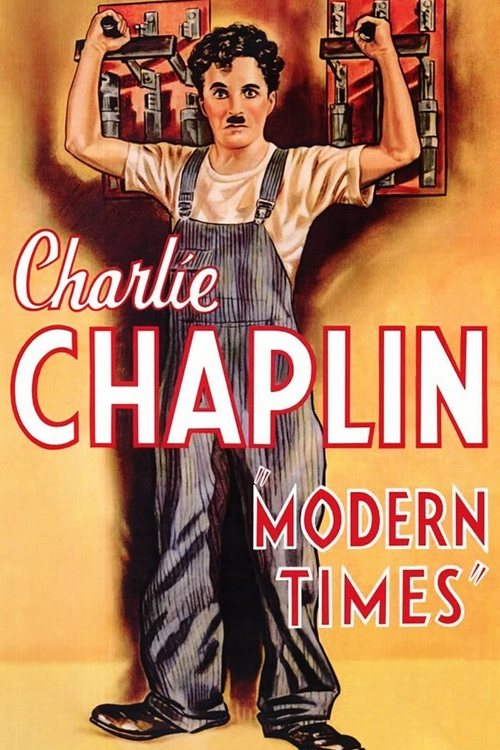
Title: Modern Times
Year: 1936
Director: Charlie Chaplin
Writer: Charlie Chaplin
Cast: Charlie Chaplin (The Tramp (A Factory Worker)), Paulette Goddard (A Gamin), Henry Bergman (Cafe Proprietor), Tiny Sandford (Big Bill), Chester Conklin (Mechanic),
Runtime: 87 min.
Synopsis: A bumbling tramp desires to build a home with a young woman, yet is thwarted time and time again by his lack of experience and habit of being in the wrong place at the wrong time..
Rating: 8.28/10